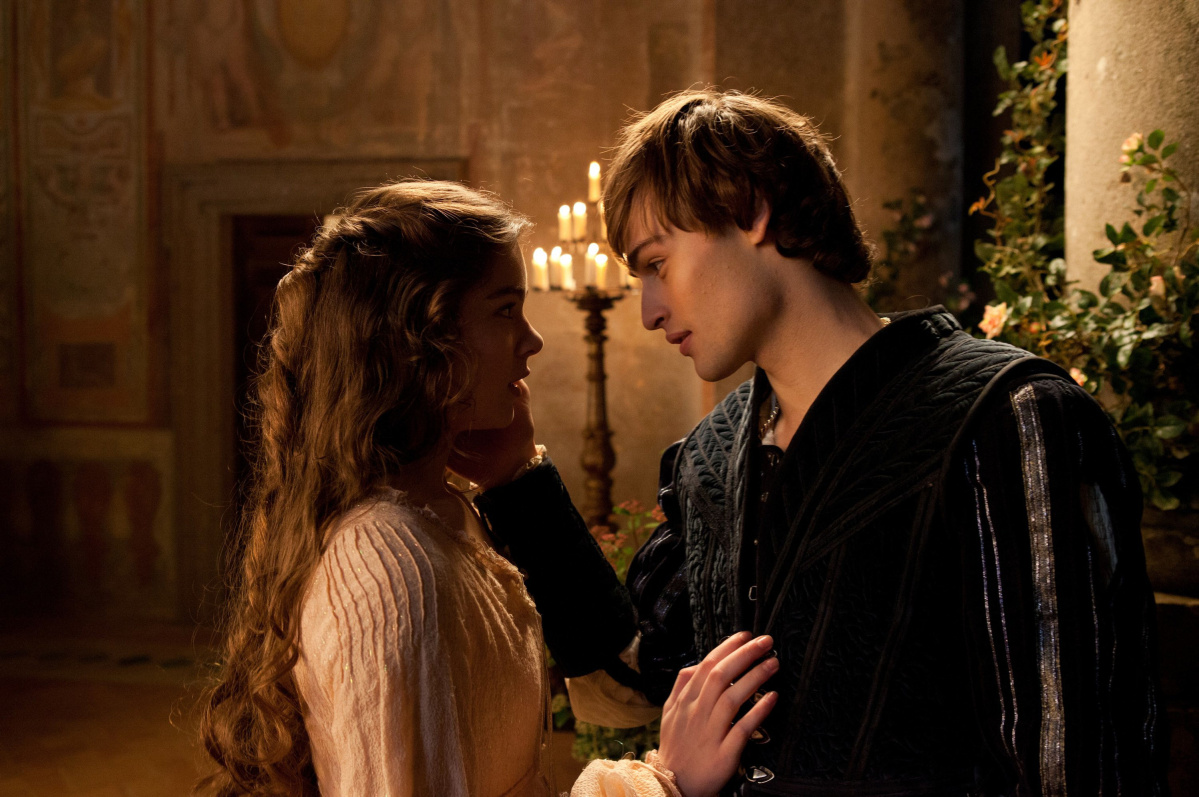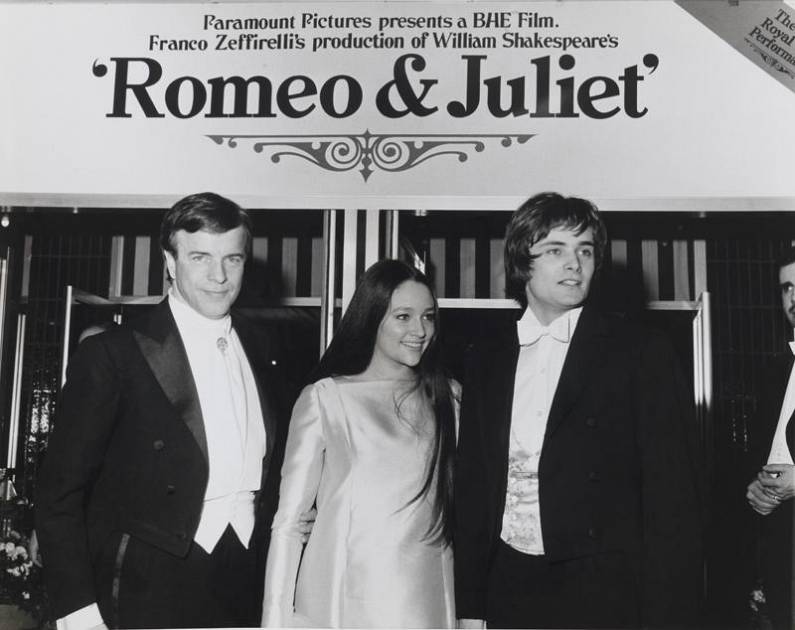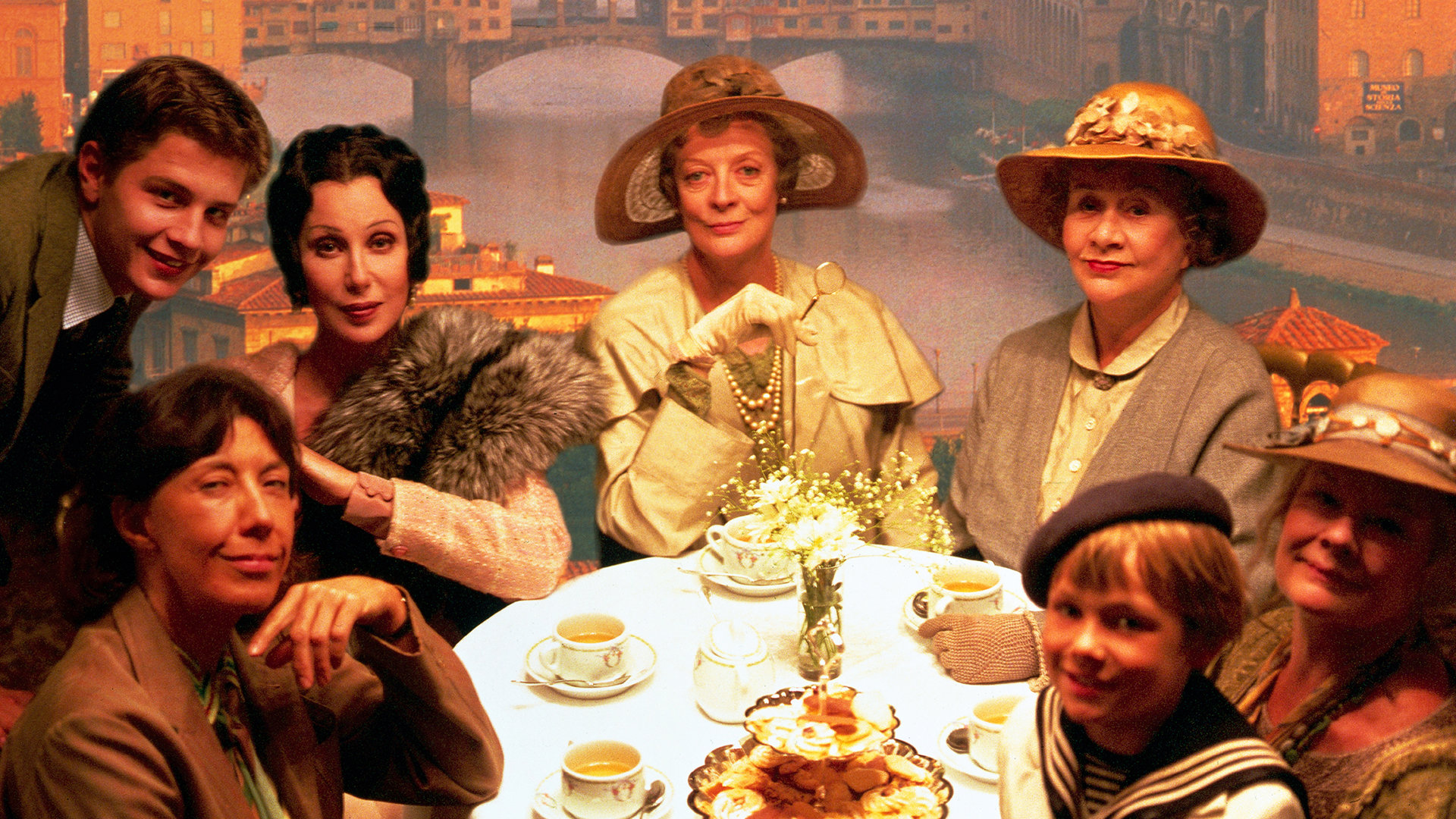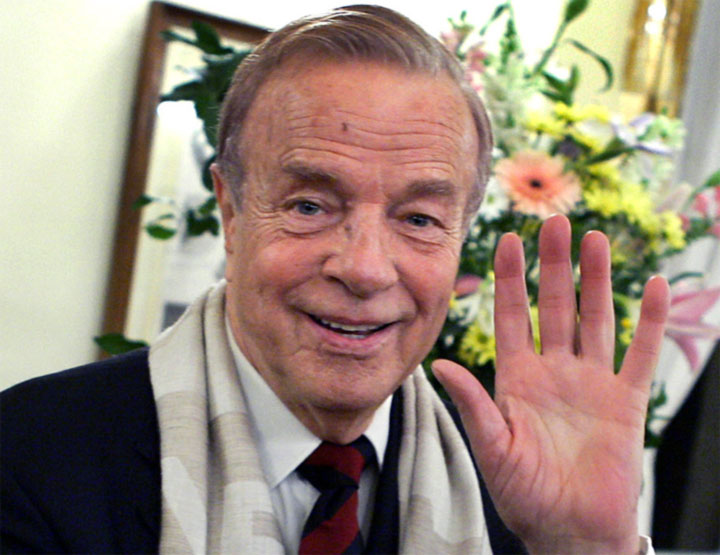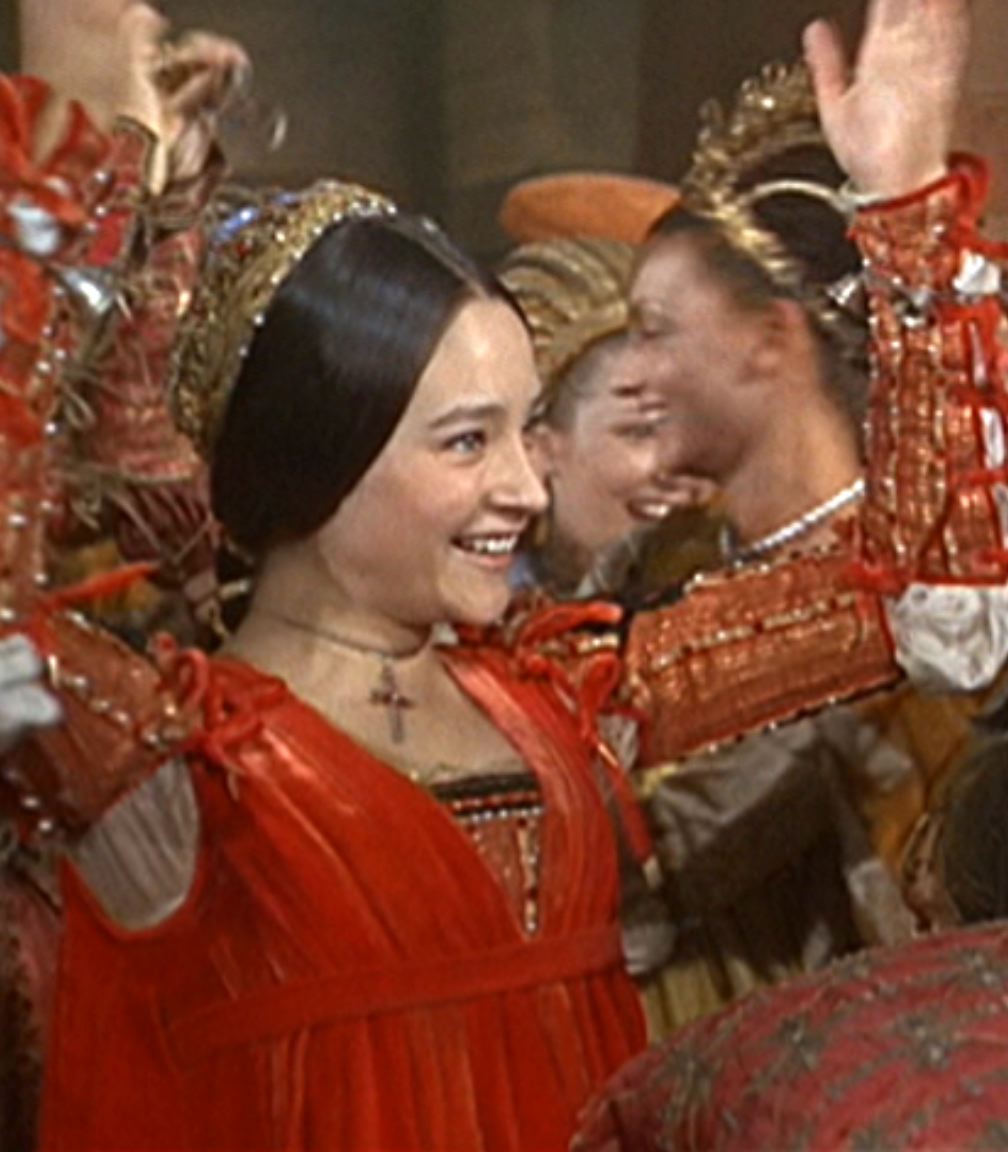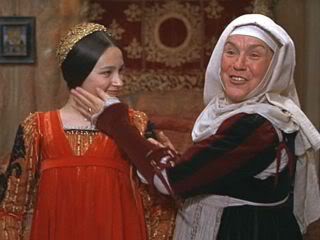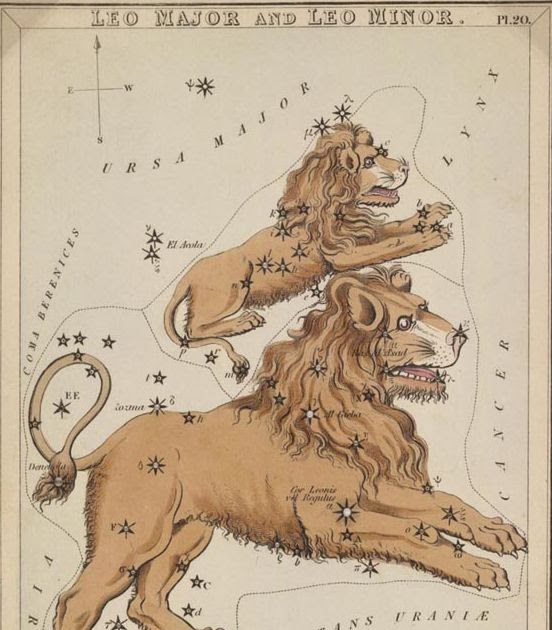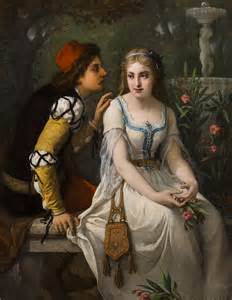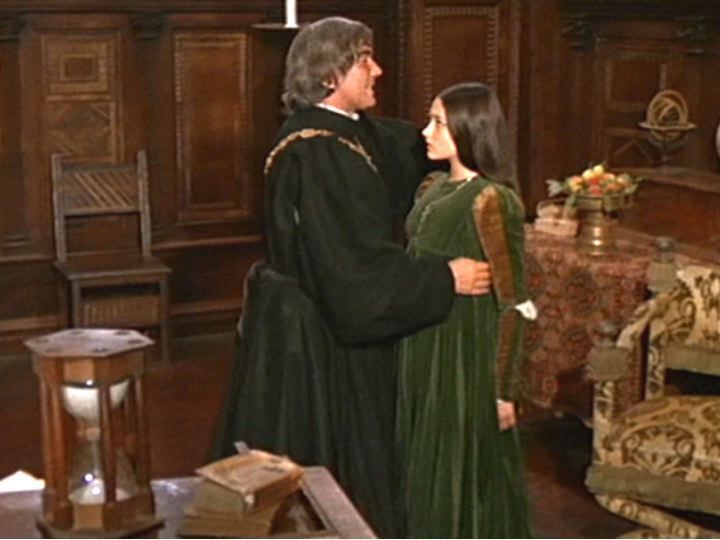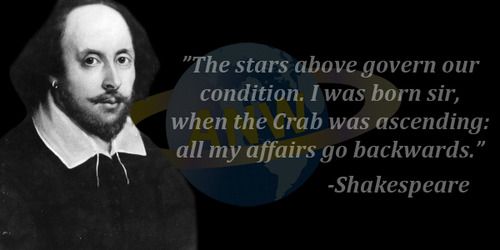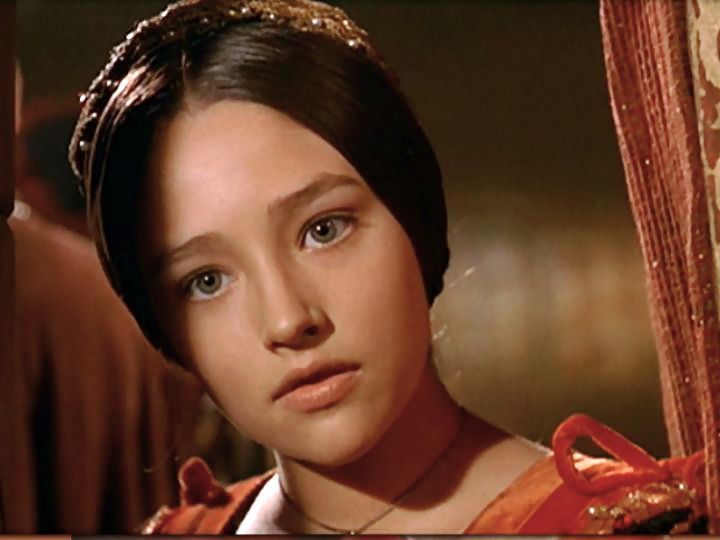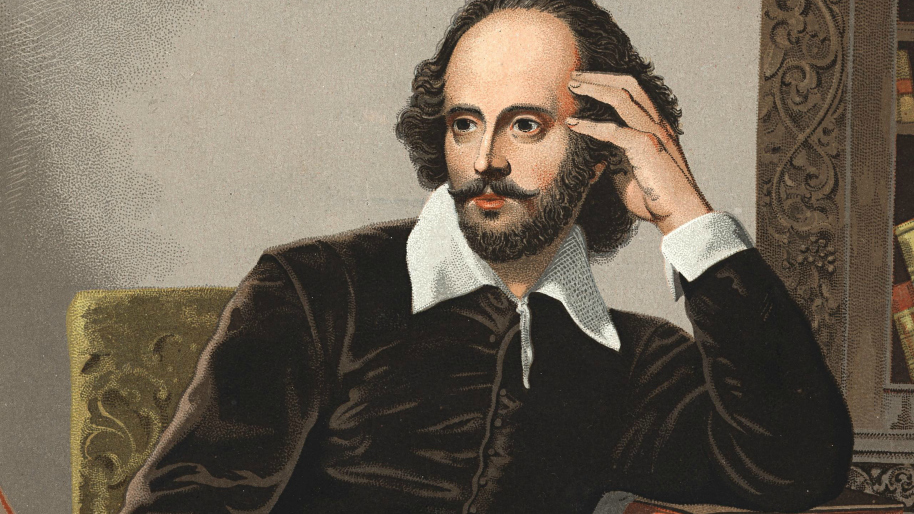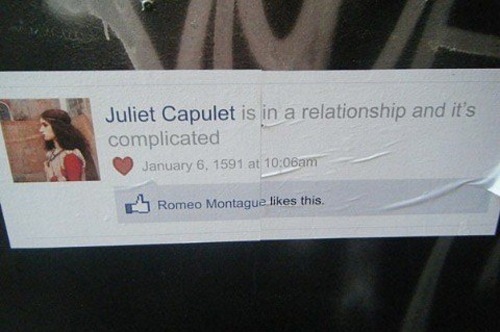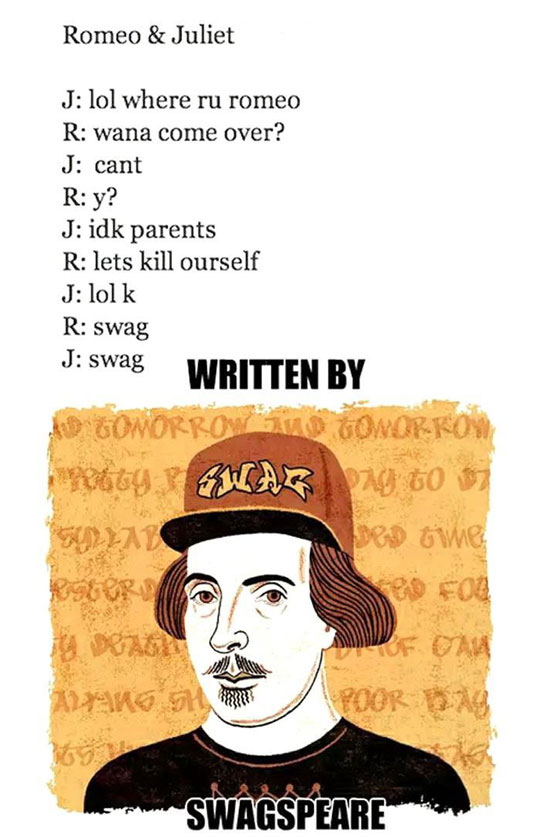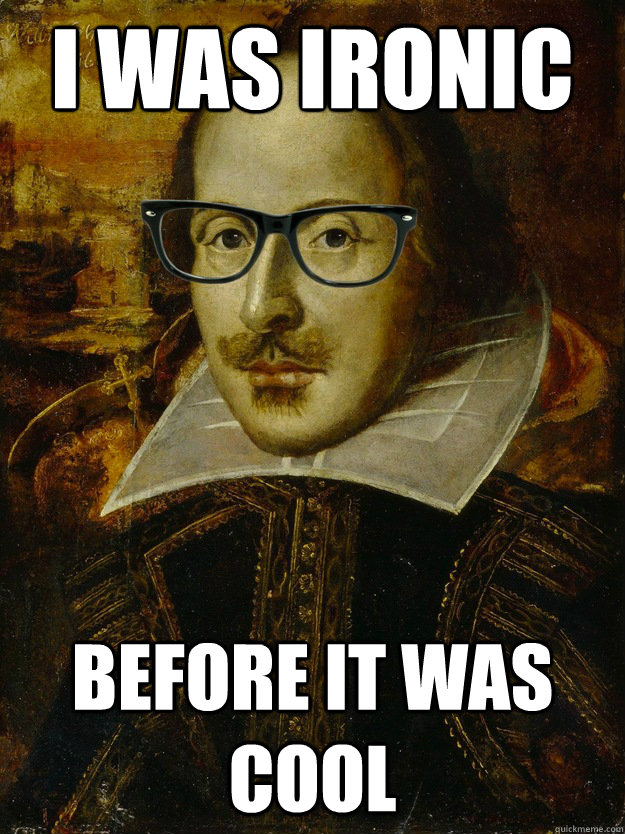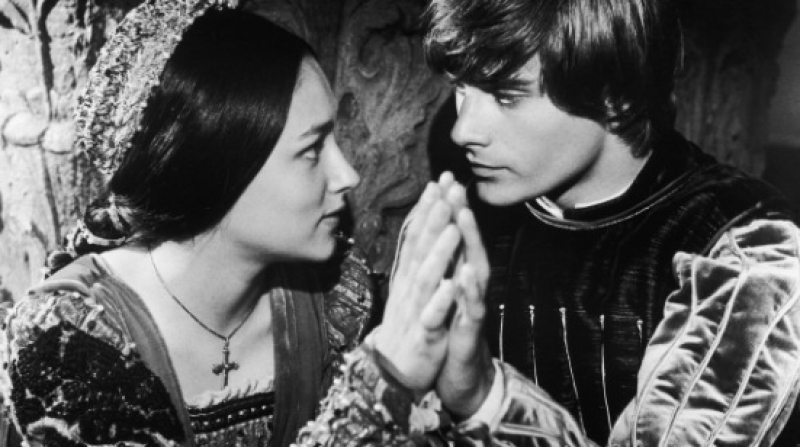
My name is Juliet and I was born to the House of Capulet in fair Verona where my story begins. My birth was on Lammas eve in the night, or so says my wet Nurse, and she ought to know, having suckled me from her own teats, changed my dirt rags and weaned me with wormwood before my second name day.
The good Master Shakespeare would have you believe I stabbed myself to death for love, unable to live without the lad Romeo after he had foolishly swallowed a measure of poison. Suicide? Me? Well now. If that were true I would not live to spin this tale, would I?
Come closer. Sit by my side and I will tell you what really happened.
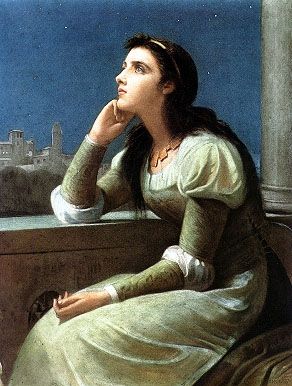
It was my wet Nurse that cared for me most, for in those days aristocratic women were lack to give attention to their children, save for our wedding prospects and the marriage mules we eventually became. My true mother, the Lady Capulet, had none of me.
“Juliet,” my Nurse told me. “You were born under the star of Leo, on the thirty first day of July, the eve of Lammas or Lughnasadh as I call it. Because of this your heart will be overwhelmed with love, for Leo the lion knows no boundaries.”
This was my blessing and also my curse. For better or worse my affections were boundless. Deep as the sea. The more love I gave the more I had for me. This is the one truth I have always known: love is infinite.
And so it was I fell madly and deeply in love with young Romeo of House Montague.
I had been raised as an aristocrat and it was understood that I be wed before my sixteenth name day. There was a fine man that bid my hand, name of Count Paris. A good enough match this would have been, but when I saw the young Romeo at my father’s masque I was completely smitten. It was as if Cupid’s very arrow had struck my back, never to be released.
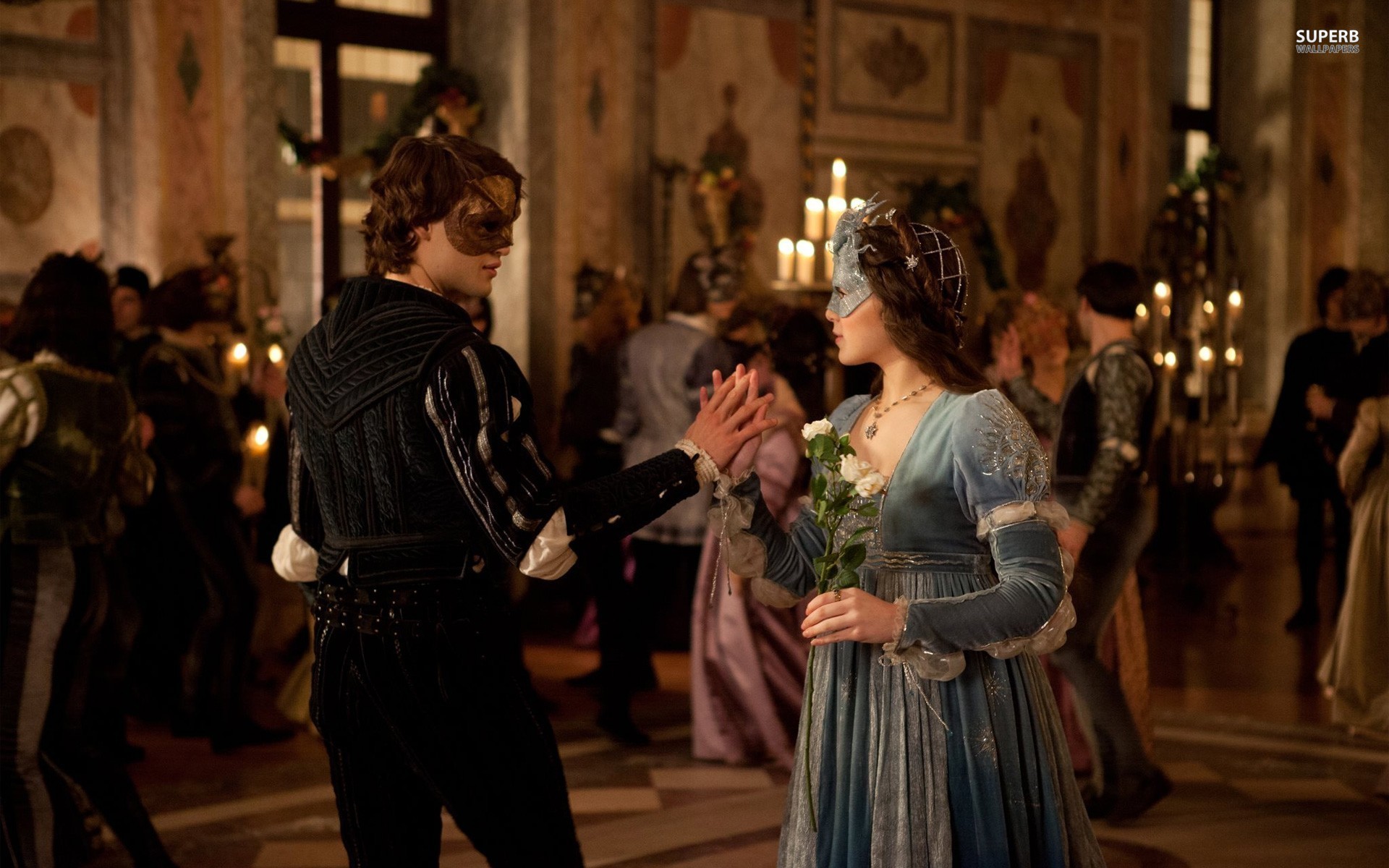
Romeo and his cousins had attended my father’s ball in false pretense, for everyone knew a Montague had no business delving in the affairs of Capulet! Our families were arch enemies. Our feud, however, was so ancient none could remember whence it started, nor what it was even about. And so when I fell in love with young Montague I could see no reason why we should not be wed.
Romeo had his surname and I had mine. Montague and Capulet. What of it? What’s in a name? A rose, were it called by any other name — say ‘lily’ or ‘weed’ or even ‘shit’ — would still, of its very essence, smell as sweet. There was nothing to a name, and none could convince me otherwise!
It was the good Friar Laurence, a well meaning (but somewhat vacant headed) man of the cloth who agreed to wed us in secret. We had a proper ceremony in a proper church, with only my Nurse as a witness.
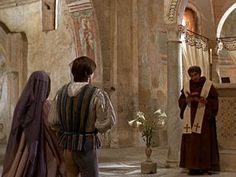
Alas, after our wedding the real troubles began.
Street brawling was forbidden in Verona. Yet a fray could easily start with a malicious word, a wayward glance, even a biting of the thumb! Anything at all could bring out the temper in dramatic rival foes such as our families were. So often I had begged the men not carry blades in the street! But what was I? A mere female, a fluffy thing of ornament. My requests were dismissed, quickly as the sun sinks a horizon or the wind whistles a breeze. Yet all who lived would regret this!
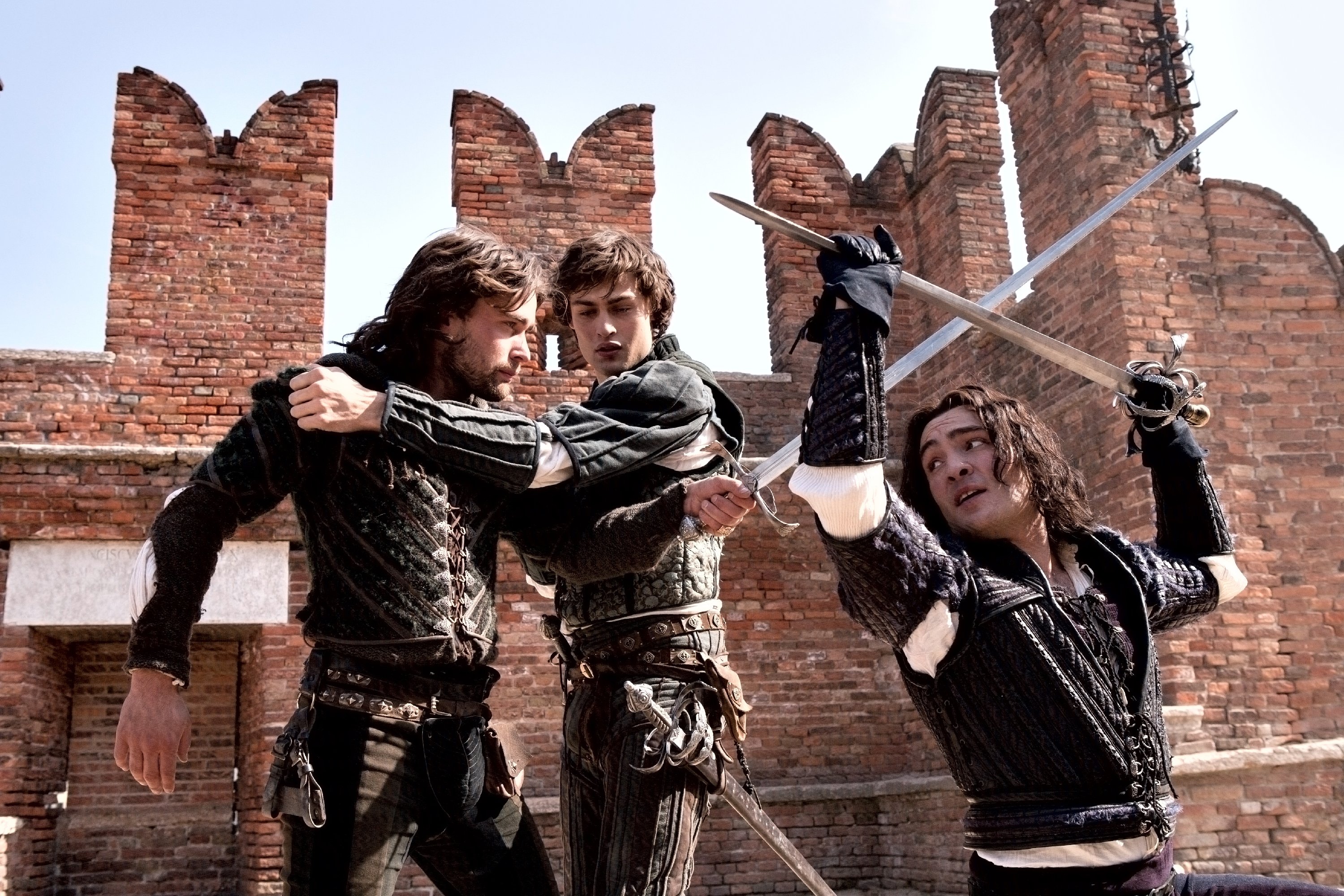
It was my cousin Tybalt who acted first, slaying Romeo’s friend Mercutio, who fell to the ground shouting “Worm’s meat! They have made worm’s meat of me!” With his quick temper Romeo then chased Tybalt, pursuing him to the top of a cobbled road, finally stabbing him straight in the heart. Tybalt was instantly dead. Our Prince Escalus, keeper of the peace, was enraged. Escalus then banished Romeo from Verona, the act of murder unforgivable.
The benevolent Friar Laurence and my Nurse, in their mercy, arranged that Romeo and I could spend one night together in my chamber before his banishment. For that I have always been grateful. My maidenhead was hitherto untouched and our act was one of purity. Lust unfolded, slowly and delicately, flesh touching beneath those bed sheets.
With much grief I let him go as the sun rose and the morning lark sang. If it were not for the strict orders of Escalus, I would never have released my dear Romeo from the passion of our bed chamber.

My father, in his sadness and panic (and knowing nothing of my marriage to Romeo) then insisted I marry the Count Paris immediately. With Tybalt slain I was now the sole heir of Capulet blood, and my father wanted I bear children in haste. Naturally I refused. “If you’ll not marry the Count Paris,” my father bellowed, “you shall go to a nunnery! Or live in the streets. Die, starve, I care not what happens to you!”
All of this, mind you, occurred before my fourteenth name day at Lammas eve.
Friar Laurence then came to my aid. Or so he thought. His plan was a silly one at best. Listen close, for this twist in the tale will surely cause you amusement: The Friar bid I take a potion that would make me appear dead! He said I would lie comatose, without breath for three days. My family, thinking me no longer quick, would bury me above ground in Capulet’s tomb. After those three days, the potion would wear off and I would rise again, like Christ himself. During this time, Romeo would be informed of all and he would ride back to Verona to claim me.
When my Nurse heard this preposterous idea, she would have none. “A fake death?” she scoffed. “The Friar! Though he fancies himself a worker of dark arts, he is naught but an amateur. Juliet my child, you will leave this to me,” she said, her cool eyes deep in thought. “I have a much better plan, one that will serve us well.”
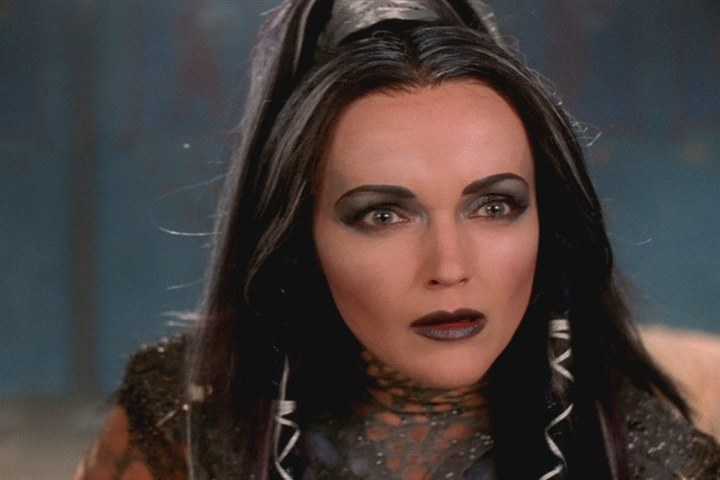
My Nurse then told me of the doppelganger. This being a double spirit that takes on human countenance. The doppelganger would look like myself, act as myself, seem in every way to indeed BE myself. But I, the real Juliet, would be elsewhere.
It was my Nurse who gave me the true potion, a noxious mixture of tansy, vervain and mugwort, with frog sperm and another secret ingredient she refused to reveal. Upon drinking the potion I could feel my body split, like two halves of a walnut shell. Then, standing before me was my double Juliet, a picture of myself in every way; the same hair, the same wide eyes, the same birthmark upon my shoulder. Myself but NOT myself! Had I not seen this with my own eyes I’d not have believed it.
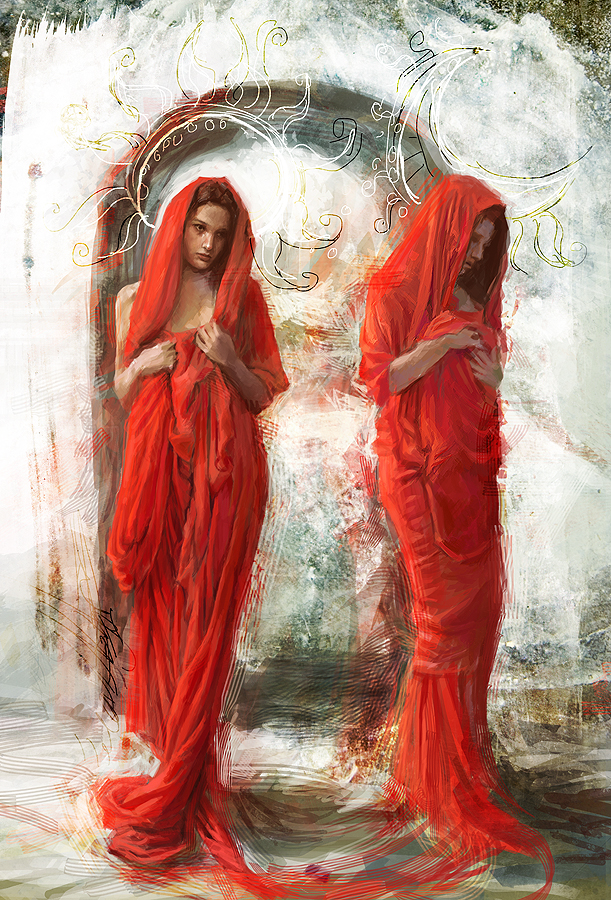
The doppelganger was obedient. She could do only as she was told, for that was part of the Nurse’s spell. This worked out well, for my father adored the docile new Juliet who would adhere to his will. This Juliet could easily forget the Romeo she had never known, swallow the Friar’s death potion without a blink, even be buried alive in Capulet’s tomb.
As for the real me, I was sick. Devastated. I wanted my Romeo back and I knew not the outcome of all this.
“Your situation here is hopeless,” the Nurse told me. She peered in a stone of crystal and continued. “The Friar has sent a messenger to Romeo in Mantua but I assure you, he will not arrive in time.” The Nurse put down the crystal and grabbed my hands. “Juliet, hear me! Your Romeo will never get this message. He will die of grief , and at his own hand. Yet you can still save yourself! We will journey to Venice.”
The Nurse’s prophecy came true. Romeo was told only of my so-called death. So distraught was he that he purchased a poison from an unscrupulous apothecary in Mantua. He then rushed back to Verona. Upon seeing the doppelganger in Capulet’s tomb and thinking it was me, he hastened to imbibe the poison, and so, killing himself.
It was the doppelganger who awakened and, seeing Romeo dead, in turn stabbed herself with his sword. Her purpose, I must admit, served well; it brought an end to the feud between Capulet and Montague. Our parents agreed to have us buried side by side, forever ending the silly war that had caused so much grief to all.
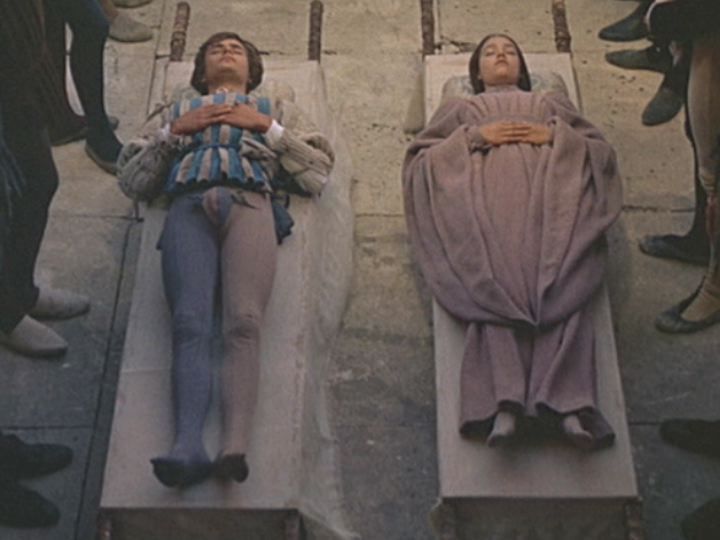
As for myself, I stayed on in Venice with my Nurse. She taught me all her tricks of prophecy and potion. Together we created a thriving business. Oh! The price men would pay for a doppelganger, one that allowed them to be in two places at one time! The price men would pay for a prophecy, as we scryed our crystals, predicting the future with accuracy. Soon my Nurse and I acquired a fortune much bigger than all of Capulet and Montague put together.
My one night with Romeo had left me with child. A boy whom my Nurse delivered, though I suckled him myself, changed his dirt rags and vowed never to partake in the cold ways of my mother, Lady Capulet. My boy grew strong, and I vowed also to teach him of prophecy and potion, just as my Nurse had taught me.
Through all of this I still missed Romeo terribly. Then on one rare, rainy day as we not often had in Venice, there appeared at my door a stranger dressed in a hooded cloak and robes.
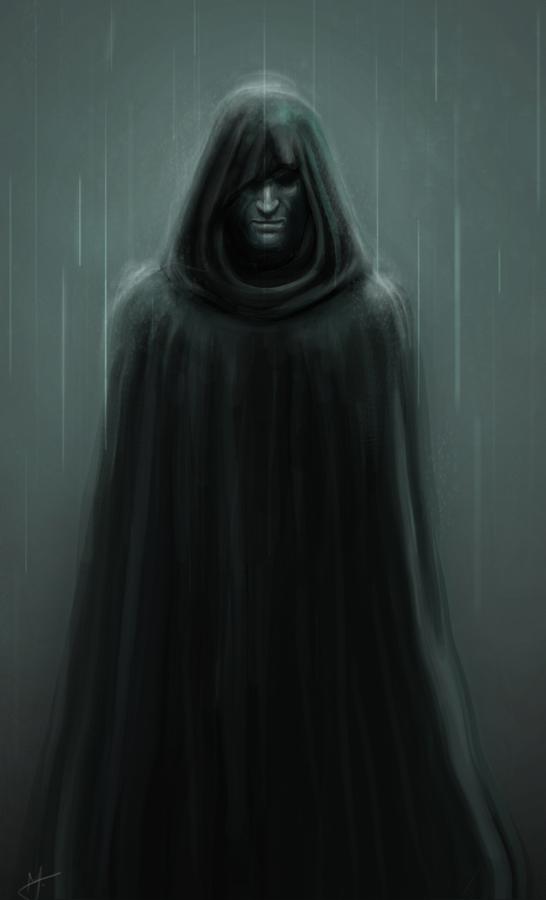
I thought at first it was the Friar, come to beg my forgiveness. But no. The stranger moved closer and whispered in my ear, “But soft, what light through yonder window breaks?” There was no light on this gray day, but I’d know the voice anywhere. With haste I removed his hood.
“It is the east,” I answered boldly. “And Romeo is the sun!” With that I fell into his arms. My own dear Romeo! But how so?
Unbeknownst to me, the good Nurse had given Romeo a doppelganger of his own! It was that who drank the poison from Mantua, that who now lie in the coffin with my double. When enough time had passed so none be suspicious my Nurse arranged this reunion.
I was shocked in joy and ecstasy. I could not be angry with my Nurse, for her plan had worked only to my benefit. My love, as ever, was boundless as the sea. The more I gave of it, the more I had for me.
Ah Master Shakespeare! If only he’d known the truth. Then mayhap he could have written a tale worth reading! For you see, I was never the star-crossed lover who took her own life. Oh no. I am Juliet, with Romeo and our son by my side, with potions and prophecies, my great Venetian mansion and enough gold to last a lifetime! I am Juliet — who in time and with experience became known as none other than the true Merchant of Venice.
